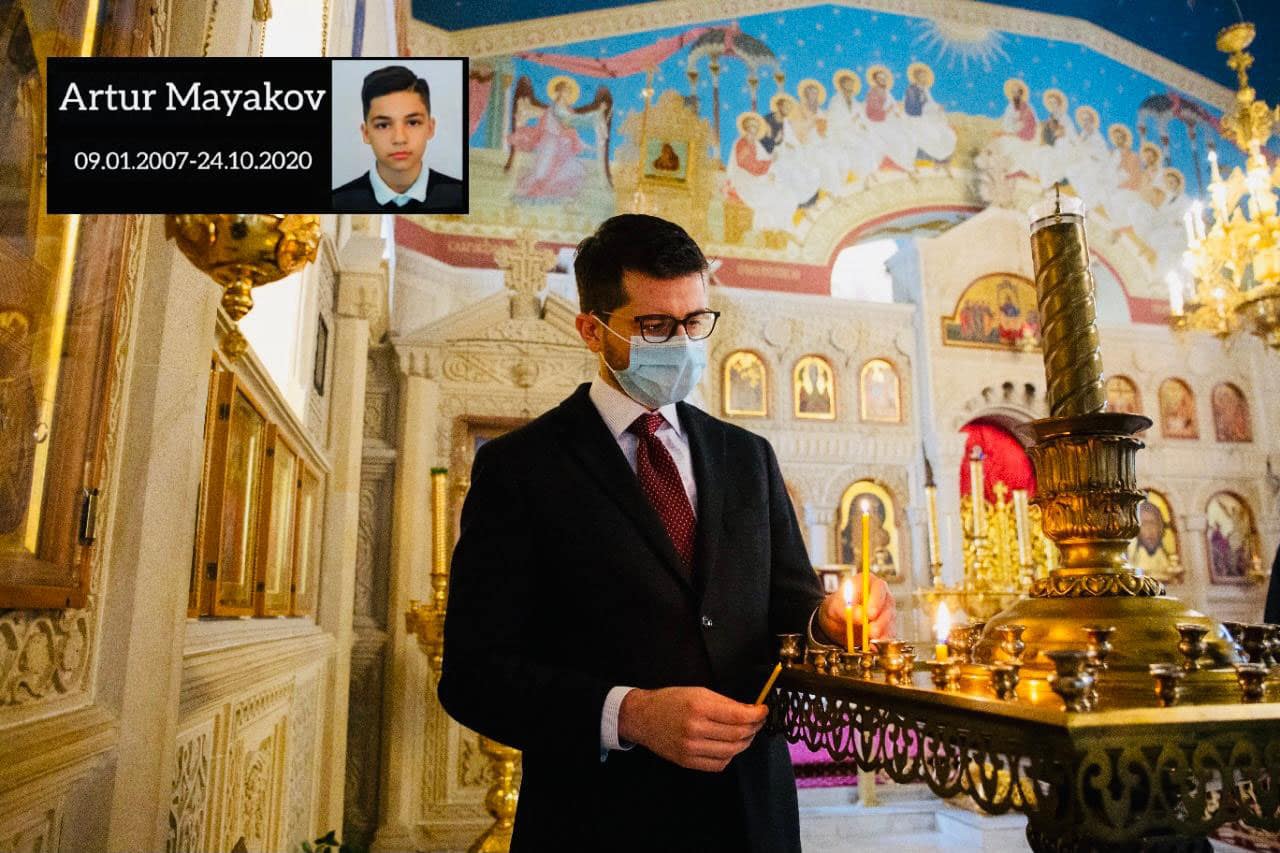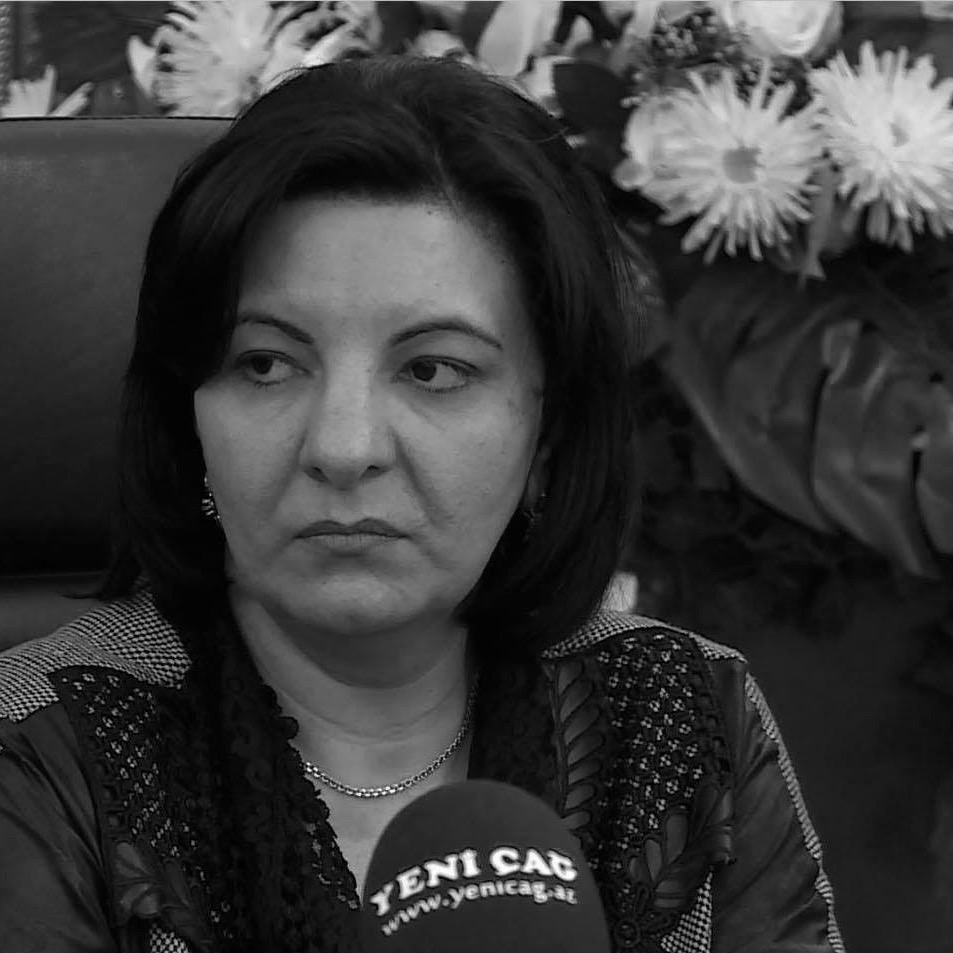 Israeli Ambassador to Azerbaijan, George Deek, lighting a candle at Russian Orthodox Church in Baku, Azerbaijan in honor of Artur Mayakov, killed in an Armenian missile attack. Source: https://twitter.com/georgedeek/status/1328312751463215106?s=21
Israeli Ambassador to Azerbaijan, George Deek, lighting a candle at Russian Orthodox Church in Baku, Azerbaijan in honor of Artur Mayakov, killed in an Armenian missile attack. Source: https://twitter.com/georgedeek/status/1328312751463215106?s=21 On November 16, 2020, George Deek, Israel’s Ambassador to Azerbaijan posted a thread on Twitter: “I am Israel’s ambassador to Azerbaijan. I’ve been a diplomat for 12 years. I usually keep my promises, but this promise I couldn’t keep”.
Ambassador Deek went on to say that a couple of weeks ago he had visited the City of Ganja, Azerbaijan’s second largest city, situated 60 miles from the Armenia-Azerbaijan conflict zone. Civilian neighborhoods of Ganja, as well as other Azerbaijani cities such as Barda and Tartar were attacked repeatedly by Armenia with missiles during the recent 44-day-war. Attacking densely populated cities well outside the warzone is consistent with the last war, and consistent with the type of brutal invasions that began nearly 30 years ago; in both cases Armenia focused on killing as many unarmed civilians as possible; men, women, children and the elderly. I have written extensively about my own experience, as a survivor of Armenian torture camps, and the incomprehensible cruelty I endured as a young woman just out of high school.
Speaking of his visit to post-missile attack Ganja, George Deek said: “I went to view the damage in residential areas. Many locals came to speak to me, sharing devastating stories. Then a young boy, around 12 years old, approached me. He said that he heard Israel has good doctors. He asked if Israel could save his friend who was in the hospital. His aunt showed me pictures. She had tears in her eyes. “Please, he got injured in the bombing, he’s in a coma at the hospital,” she said. “He’s a good kid, help him”. I was deeply moved. I promised to help. We took the boy’s name. It was Artur Mayakov. Already that evening we began to see if there’s anything we could do. But I couldn’t keep my promise. Two days later, Artur died from his injuries. He was 13 years old. I was heart-broken. A few days ago, I went to the Russian Orthodox church in Baku. I prayed and lit a candle for Artur. I asked forgiveness for not keeping my promise. May your soul rest in peace, Artur. May the children of this region enjoy a more peaceful future.”
Israel’s Ambassador to Azerbaijan and his effort to save the life of this child touches on the brave and tireless closeness shared between Israel and Azerbaijan, one that has proven unshakable throughout the decades, despite intense regional unrest and much pressure on Azerbaijan from some Muslim nations and on Israel from Armenia and its diaspora.
Azerbaijan is known above all else as a nation that has mastered multifaith harmony; a country where for thousands of years into today, Jews, Muslims, Christians and many others live, practice and celebrate their faith with mutual respect and total security.
Armenia has spent a lot of time and money trying to convince people in the West that this war was some kind of crusade, a Christian vs Muslim campaign, hoping to rely on an unaware public and rally Islamophobic and white supremacist forces. They even invited neo-Nazis from Germany to Karabakh last month. An infamous leader of a French neo-Nazi group also joined the Armenian forces in Karabakh fighting Azerbaijan.
In fact, nearly 30-year-long illegal occupation of Azerbaijan’s sovereign territory and the forcible displacement of 800,000 Azerbaijanis were condemned by the entire international community, including by UN Security Council and General Assembly resolutions. United States and Israel, as all other countries of the world recognize Azerbaijan’s territorial integrity. It has never been a religious conflict. It was a war of aggression and occupation by Armenia against a mostly civilian population of Azerbaijani Muslims, Jews, Christians and others, who fought together against the Armenian aggression, both during the early 1990s and the recent war, defending their homeland.
One of the first victims of Armenian missile attacks on Ganja was actually an elderly Armenian woman who continued to peacefully live in Ganja, even after the war of 1990s. She is one of the 30,000 ethnic Armenians, who live in Baku and other major Azerbaijani cities despite the conflict, which is another testament to the inclusivity and multiculturalism of Azerbaijan. At the same time, all 250,000 Azerbaijanis were expelled from Armenia in 1988-91.
As Israeli Prime Minister Benjamin Netanyahu stated when he visited Baku in 2016, ‘The world sees so much intolerance, so much darkness, and Azerbaijan is an example of what relations can be and should be between Muslims and Jews everywhere.’”
I think about Israel often, especially as we have just endured this recent war. I think of the endless support Israel has provided Azerbaijan as our consummate partner in peace and an ally, working together over many years as we both face a world where sadly, many still operate with extremism, violence and terror. Our nations both share an indomitable hope and courage that has propelled us both for thousands of years and will continue to lead us forward for thousands of years to come. Together, we fight for a world where one day there will be no more children murdered in the name of senseless war, and an end to raising of arms in the name of hate. We share common challenges, and yet what is most powerful is that we share a common dream.























 More news and opinions than at a Shabbat dinner, right in your inbox.
More news and opinions than at a Shabbat dinner, right in your inbox.